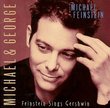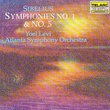| All Artists: Antonin Dvorak, Dmitry Shostakovich, Sergey Rachmaninov, Eroica Trio Title: Eroica Trio: Dvorak/Shostakovich/Rachmaninov Members Wishing: 1 Total Copies: 0 Label: EMI Classics Release Date: 7/15/1999 Genres: Pop, Classical Style: Chamber Music Number of Discs: 1 SwapaCD Credits: 1 UPCs: 724355667328, 724355667359 |
Search - Antonin Dvorak, Dmitry Shostakovich, Sergey Rachmaninov :: Eroica Trio: Dvorak/Shostakovich/Rachmaninov
 | Antonin Dvorak, Dmitry Shostakovich, Sergey Rachmaninov Eroica Trio: Dvorak/Shostakovich/Rachmaninov Genres: Pop, Classical
The Eroica Trio has attained a remarkable reputation in a relatively short time. The players are technically excellent; their seamless ensemble, close rapport, and fine balance prove that they started playing together as y... more » |
CD DetailsSynopsis
Amazon.com The Eroica Trio has attained a remarkable reputation in a relatively short time. The players are technically excellent; their seamless ensemble, close rapport, and fine balance prove that they started playing together as young students. Their most striking characteristics are their flamboyance, intensity, and glamorous looks; the record jacket credits the stylists of their clothes, hair, and makeup. Their long association with these works shows in their utter security and in the daring liberties they take with rhythm, tempo, and phrasing, but their excesses and exaggerations, rather than expressing an inner emotional impulse, seem superimposed for outward effect. The string players' fast, nervous vibrato is unvaried; their incessant, slow, sentimental slides--especially the cellist's--are distracting. Shostakovich, a composer given to extremes, is better suited to their approach than Dvorák: the first movement opens eerily; the rhythms are sharp and pungent; the Scherzo is very fast and brilliant, the texture clear. The slow movement is extremely slow, too lush, not bleak enough; the Finale is wild. Their own arrangement of the Rachmaninoff is good, but the playing is too extroverted. --Edith Eisler Similarly Requested CDs
|
CD ReviewsSame problems as debut album, but more effective pieces Bradley P. Lehman | Dayton, VA USA | 03/14/2001 (3 out of 5 stars) "Four stars for the Dvorak, three for the Shostakovich, two for the Rachmaninoff.I bought this with trepidation, after trying half a dozen times to like their debut album and always failing. As I pointed out in my review of that one, the Eroica Trio doesn't deliver slow music convincingly. I bought this anyway because I wanted the Shostakovich and Dvorak trios: convenience, a good pairing for CD. Plus I had a morbid curiosity to hear what the generic Eroica interpretation would do to these pieces. The problems are still here, but at least this music can take their approach better than the elegant Ravel trio can. The Eroica Trio sounds most comfortable with tense music. They're excellent when things get hyped up (though there is also a tendency to bang the loud parts too vehemently). They can deliver high voltage as well as anyone. But when they slow down, and they often take slow tempos to iconoclastic extremes, it seems stiff and cautious. It just sounds like note-note-note being fit into place, instead of expressive phrases. This makes their recorded performances dull and episodic...stretches of boredom while we wait for them to wrench the tempos back into their comfort zone. They pull the music into disparate sections rather than playing it from the inside, letting it grow naturally. This works fairly well in the "Dumky," which is a piece of extreme contrasts anyway. The lively parts are delivered with great enthusiasm. The slow parts, which are supposed to be sorrowful and introspective, are dry-eyed and don't show much depth. But at least this piece fits the Eroica Trio's style of playing surface contrasts. There's plenty of fun here.The performance of the Shostakovich trio is OK in the first two movements, but then it gets oppressive in the slow movement (too slow and aimless) and the finale (beat to death). I didn't hear much mystery or atmosphere. It just sounds like generic music, while this is one of the most intensely characterful pieces in the piano trio repertoire. When the earlier themes come back in the fourth movement, they sound trivial here, strung together. Isn't there supposed to have been a spiritual transformation through the course of the piece? The Eroica Trio seems not to understand Shostakovich's introverted side (or Dvorak's). Have they ever listened to the Borodin String Quartet play Shostakovich?In the "Vocalise" it's even worse: it seems that the only way for them to emote or give any variety is to speed up periodically. Have they ever listened to Rachmaninoff's own recording? He conducted a romantic, lush performance in under four minutes: beautiful natural flow with a plastic rubato. The Eroica Trio takes 6'44" and it doesn't go anywhere. They terrace their tempos for sections, and the vibrato gets more vehement, but these changes seem artificial. Where's the romance, the atmosphere, the expression, the spontaneity? Where's the sense that this was originally a vocal piece?All three of the pieces here can evoke strong moods: sorrow, desolation, joy, anger, bittersweet melancholy. That's what makes these pieces difficult and meaningful: the opportunity to reveal the composer's thoughts and feelings encoded in (and transcending) the notes. But in this second CD it sounds as if the Eroica Trio still merely settles for notes, rhythms, and the extraverted splash that generates standing ovations at concerts (and CD sales). It's "listen to us," not "listen to this incredibly transcendent composition!" That's a shallow goal when they obviously have the physical technique to give much more.I keep wondering as I listen: if this group is allegedly so wonderful in concert performances, why don't they release videotaped "live" recordings to show what they can do? Does the presence of an audience help give their slow music some life? Or is the slow music only convincing with the added visual stimulation of watching the show? In an audio-only recording, the visual elements of a performance do not matter; the musical presentation has to make the points. The Eroica Trio might be top-notch in concert, I don't know, but that reputation does not show up in their recordings.And this CD, like the first one, is therefore disappointing. My wife didn't like these either. It sounds like a mere souvenir for fans of their concerts who want to relive the exhilaration they felt. Fine, if that's all you want for your money, a memento. But when the rest of us who haven't heard the live show buy the CD's, we deserve and expect to hear the music's heights and depths. We want to hear the compositions come alive as organic creations, with some unity across all the sections. We want to hear either a sense of one-time occasion or something to be studied in wonder, repeatedly. The released CD has to justify itself as an satisfying object of art, apart from any concert. But these studio renditions don't come alive: they just sound like sections of music assembled painstakingly next to one another. No over-arching coherence.I'm trading this in for the more compelling Naxos CD's: performances that sound natural, and less than half the price." This CD is a must-buy! M. Franklin | Indio, CA | 12/19/1998 (5 out of 5 stars) "I first heard the Eroica Trio in concert last summer, and was impressed with how effectively they put themselves into their music, and how well they conveyed their feelings to the audience. I loved their first CD, and anxiously awaited the release of their second. The new CD, featuring Dvorak and Shostakovich piano trios, with a touch of Rachmaninov, is well worth the wait. This is a superb performance, combining both brilliant technique and expressive ability. It may be the best recording ever of the Shostakovich Piano Trio No. 2. If it is possible to wear out a track on a CD, I'll wear out the Rachmaninov Vocalise: a beautiful piece, played with tremendous emotion. The entire CD is outstanding. When you have heard it, you'll want to buy CDs for all of your friends. Save time and shipping costs - buy several now!" Brilliant Shostakovich... Sugi Sorensen | La Canada, CA USA | 07/25/1999 (5 out of 5 stars) "The Eroica's performance of the Shostakovich Piano Trio is nothing short of brilliant. Sant' Ambrogio is particularly scorching on the cello, but together they imbue a synergy which transcends the individual contributions. They convey the full range of emotions of the Second Piano trio, from the morose, somber opening movement to the electrifying finale of the Allegretto. I heard them play it live and it was emotionally draining. The Vocalise is also good, but otherwise for me loses something in the transcription to trio (...of course I could be biased being a pianist.)"
|

 Track Listings (10) - Disc #1
Track Listings (10) - Disc #1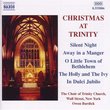
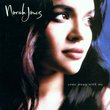
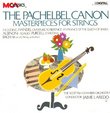


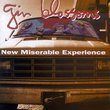
![No Need to Argue [IMPORT]](https://nationalbookswap.com/cd//m/76/4376/204376.jpg)
